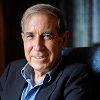The Era of Disorder
This article is adapted from a longer article appearing in the November/December 2014 issue of Foreign Affairs.
NEW YORK – Historical eras are difficult to recognize before they end. The Renaissance became the Renaissance only in retrospect; the same can be said for the Dark Ages that preceded it and any number of other eras. The reason is simple: It is impossible to know if some promising or troubling development stands alone or represents the start of a lasting trend.
Nonetheless, I would argue that we are witnessing the end of one era of world history and the dawn of another. It has been 25 years since the Berlin Wall was dismantled, bringing the 40-year Cold War to an end. What followed was an era of American preeminence, increased prosperity for many, the emergence of a large number of relatively open societies and political systems, and widespread peace, including considerable cooperation among the major powers. Now that era, too, has ended, ushering in a far less orderly and peaceful epoch.
The Middle East is in the early phases of a modern-day Thirty Years’ War, in which political and religious loyalties are destined to fuel prolonged and sometimes savage conflicts within and across national borders. With its behavior in Ukraine and elsewhere, Russia has challenged what had been a mostly stable European order founded on the legal principle that territory may not be acquired by military force.
Asia, for its part, has remained mostly at peace. But it is a precarious peace, one that could come undone at any moment, owing to a large number of unresolved territorial claims, rising nationalism, and a paucity of bilateral or regional diplomatic arrangements robust enough to prevent or moderate confrontations. Meanwhile, global efforts to slow climate change, promote trade, set new rules for the digital age, and prevent or contain outbreaks of infectious diseases are inadequate.
Some of the reasons why this is happening reflect fundamental changes in the world, including the diffusion of power to an increasing number of states and non-state actors, ranging from terrorist organizations and militias to corporations and NGOs. Managing greenhouse-gas emissions and global flows of drugs, arms, terrorists, and pathogens would be no easy task under the best of circumstances; it is made more difficult by a lack of consensus on what to do and a lack of will to act even when agreement exists.
Other reasons for growing global disorder have to do with the United States. The 2003 Iraq War exacerbated Sunni-Shia tensions and removed a critical barrier to Iranian ambitions. More recently, the US called for regime change in Syria, but then did little to bring it about, even after government forces, ignoring American warnings, repeatedly used chemical weapons. What emerged in the region was a vacuum filled by the Islamic State. In Asia, the US articulated a new policy of heightened involvement (the so-called strategic “pivot” to the region), but then did little to make it a reality.
The consequence of these and other episodes has been the emergence of widespread doubt about US credibility and reliability. As a result, a growing number of governments and others have begun to act independently.
There are also local explanations for growing global instability. The Middle East suffers from too much intolerance and too little accord about either the boundaries between government and society or the role of religion within them. Meanwhile, countries in and near the region are doing little to prevent the rise of extremism or contend with it when and where it emerges.
Russia under Vladimir Putin seems determined to use intimidation and force to restore lost parts of its empire. Europe increasingly lacks the means and the mindset to play a significant global role. Too many Asian governments are tolerating or encouraging nationalism rather than preparing their populations for difficult but necessary compromises with neighbors.
This is not to argue that we are in for a new Dark Ages. Interdependence acts as a brake on what governments can do without hurting themselves. The world economy has recovered somewhat from its nadir six years ago. Europe is mostly stable, as is Latin America and an increasing share of Africa.
There is also the possibility of pushing back against the new disorder. International negotiations might produce an outcome that would leave Iran sufficiently short of a nuclear-weapons capability that its neighbors would not feel the need to attack it or develop such weapons of their own. Steps can be taken to weaken the Islamic State militarily, reduce the flows of recruits and dollars to it, and shore up some of its potential targets. Sanctions and lower oil prices might lead Russia to accept compromise on Ukraine. Asian governments could still opt for regional arrangements that would buttress peace.
But what can be accomplished is likely to be limited by countries’ domestic politics, the absence of international consensus, and the waning of US influence, which no other country is able to replace and few are willing even to support in promoting order. The result is a world less at peace, less prosperous, and less adept at meeting the challenges it faces than it was in the post-Cold War era.
Copyright: Project Syndicate, 2014.
www.project-syndicate.org
This article is brought to you by Project Syndicate that is a not for profit organization.
Project Syndicate brings original, engaging, and thought-provoking commentaries by esteemed leaders and thinkers from around the world to readers everywhere. By offering incisive perspectives on our changing world from those who are shaping its economics, politics, science, and culture, Project Syndicate has created an unrivalled venue for informed public debate. Please see: www.project-syndicate.org.
Should you want to support Project Syndicate you can do it by using the PayPal icon below. Your donation is paid to Project Syndicate in full after PayPal has deducted its transaction fee. Facts & Arts neither receives information about your donation nor a commission.



















